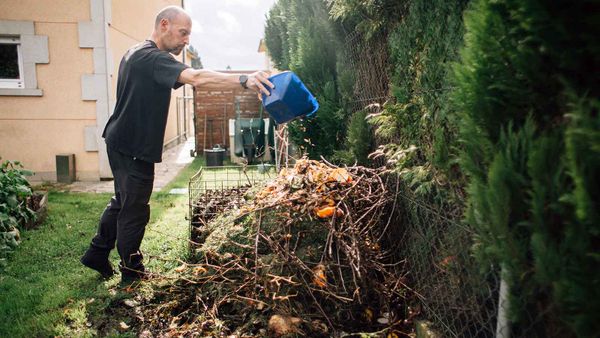Composting is a way to treat solid waste so that microorganisms break down the organic material, helping along the natural process of decay until it can be safely handled, stored and applied to the environment.
The composting process requires organic waste, such as leaves, grass, fruit and vegetable scraps, soil (which contains microorganisms), water and oxygen. The microorganisms eat the organic waste, breaking it down into its simplest components. The humus (finished compost) they produce is rich with fiber and inorganic nutrients, such as phosphorus, potassium and nitrogen, and it makes a natural fertilizer that is beneficial to the environment. In order to produce this humus, the microorganisms need water, as do all living things, and oxygen for aerobic respiration. The microorganisms access this oxygen when you turn over the compost every day or two. In the respiration process they give off heat (temperatures of up to 150 degree Fahrenheit or 66 degrees Celsius) and carbon dioxide. If you regularly water and turn the compost in your compost bin or pile, the compost can completely decompose in just two to three weeks. Otherwise it can take months to decompose.
Advertisement
Aside from regular turning and watering (so that the mixture is moist but not too wet), your compost needs enough soil (so it has enough microorganisms) and the right ratio of carbon to nitrogen (about 30:1). The smaller the pieces in your compost bin, the faster they will break down.
The foodweb, or organization of organisms, within your compost pile helps to increase the efficiency of the decomposing process. The foodweb includes fungi and bacteria that break down the organic matter in your trash; protozoa, nematoids (small worms) and mites that feed on the fungi and bacteria; and invertebrates, such as beetles, sowbugs and millipedes that feed on the protozoa, nematoids and mites.
Advertisement
